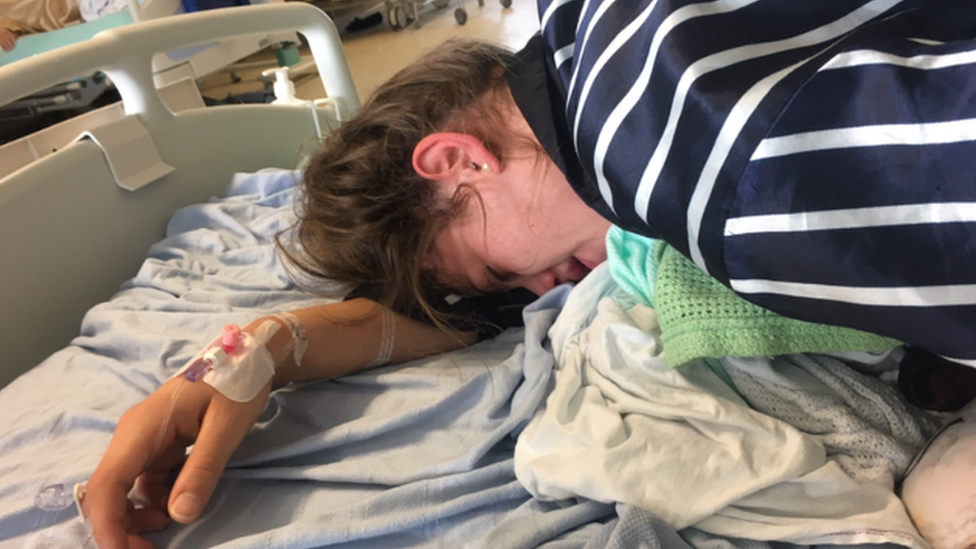Endometriosis: Early diagnosis 'would make huge difference'
- Published
"There isn't being enough done to recognise and diagnose the disease," says Alex Roach
A woman whose disabling menstrual pain was dismissed as "what happens to women" says more needs to be done to diagnose endometriosis earlier.
Alex Roach, 24, waited seven years and saw numerous doctors before finding out why she was suffering so much.
The disease causes the womb lining to grow in other parts of the body and can lead to infertility.
A Welsh Government report found a lack of endometriosis understanding among medics and delayed diagnosis.
Health Secretary Vaughan Gething has vowed that the report will be "just the start of a process that will improve the lives of women in Wales affected by endometriosis".
It is something Ms Roach believes many women have been waiting to hear.

Alex Roach had to wait seven years for a diagnosis
Ms Roach, who works at a law firm in Cardiff, said her problems started as soon as her periods began while she was a schoolgirl in Bruton, Somerset, with "not just your typical cramps, severe pain".
"I was told by many doctors that I was a woman, and that was what happened and it's painful for some people," she said.
Her family consulted gynaecologists but were still no nearer to knowing what was causing such tremendous pain, which was interfering with school attendance and activities.
"I didn't hear the word endometriosis for years," she said.

You may also be interested in:

Eventually a doctor suggested doing a laparoscopy, external - an exploratory procedure where a camera is introduced into the abdomen.
The surgeon was not an endometriosis expert and said there was nothing to find, so Ms Roach continued taking hormonal contraception which had previously been prescribed.
Two years into her degree at Cardiff University she had a second laparoscopy with an endometriosis specialist and she was finally diagnosed aged 20, seven years after first having pain.

What is endometriosis?
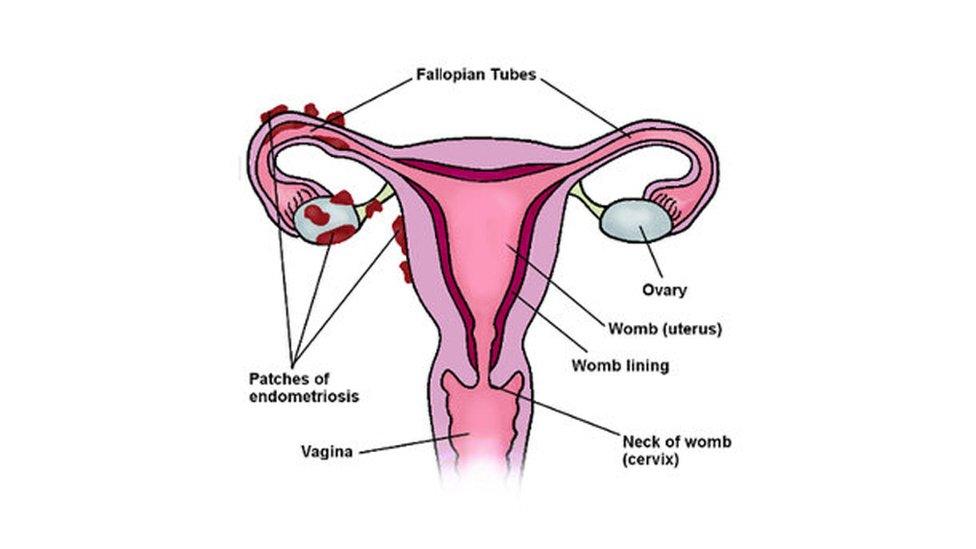
How endometriosis builds up around the fallopian tubes and ovaries
Endometriosis is a condition where the tissue that lines the womb (endometrium) is found outside the womb, such as in the ovaries and fallopian tubes
It mainly affects girls and women of childbearing age. It is less common in women who have been through the menopause
It is a long-term condition that can have a significant impact on your life, but there are treatments that can help
Symptoms include: Pain in your lower tummy or back (pelvic pain) - usually worse during your period; pain when going to the toilet during your period; feeling sick, constipation, diarrhoea, or blood in your urine during your period; difficulty getting pregnant
For some women, endometriosis can have a big impact on their life and may sometimes lead to feelings of depression

Diagnosis and surgery
Ms Roach had surgery following the diagnosis.
"Half of my left side of my organs had all fused together [because of scarring and adhesions]. I had cysts, I had internal bleeding. I had all kinds of things going on that I didn't anticipate," she said.
She had a second surgery for gallstone and gall bladder removal after problems caused by hormones she was taking, and a third after her pain recurred.
Despite having the diagnosis, five GPs had said there was no underlying physical cause and it was only when she paid for a private scan that a large cyst was found and removed.
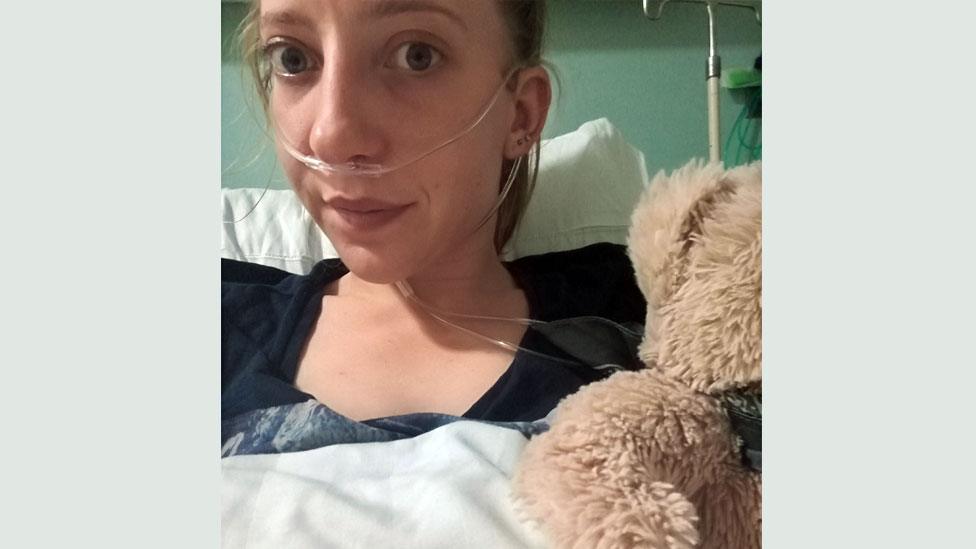
Alex Roach has undergone three operations due to the condition
Ms Roach, a member of the Fair Treatment for the Women of Wales, external group whose research led to the Welsh Government investigation, said it was vital there was greater understanding of the impact the disease had on the lives of the one-in-10 women it affected.
She missed lectures in university, had to sit exams shortly after surgery and had to scale down her hopes of getting a first-class degree. She was also told the condition had affected her chances of promotion at work.
She also knows she is likely to need surgery in the future and does not know how her chances of having children will be affected, adding her partner had "been to hell and back with me".
"There needs to be a recognition that there isn't enough being done to recognise and diagnose the disease. It's horrendous being in pain but it's even worse when you have no idea why," Ms Roach said.
"It's the leading cause for infertility and it would make a huge difference to my life, to so many different women's lives, if diagnosis could happen earlier and the damage prevented and the fertility preserved."
The report, external found current provision across all levels of service from GPs to specialists was not meeting need, and a lack of understanding of the condition led to delays in diagnosis, poor management of symptoms and negative outcomes for patients.
The report makes a number of proposals, including:
Early education in menstrual well-being from primary school age onwards and timely response to symptoms by GPs, with onwards referral for further investigation with an endometriosis specialist gynaecologist if necessary
Each health board in Wales should identify one or more endometriosis consultant leads and provide a specialist nurse. At present there is only one such nurse in the whole of Wales, in Cardiff's specialist endometriosis centre, and three specialist consultants
Debbie Shaffer founded Fair Treatment for Women in Wales (FTWW) after suffering from endometriosis herself for 26 years before being diagnosed.
She fought for over two years to get treatment in Liverpool as there was no endometriosis specialist where she lived in north Wales.
"Women were having inadequate treatment locally, repeatedly, year on year," she said.
Ms Schaffer set up FTWW, initially via a Facebook page, after working with Cardiff University to survey women across Wales to get their experiences.
She wrote a report from the results which she sent to the Welsh Government and the head of NHS Wales.
This prompted the creation of a task and finish group, with Ms Schaffer on the panel, which produced the Endometriosis Care in Wales report.
- Published19 October 2018

- Published11 March 2018

- Published7 March 2018
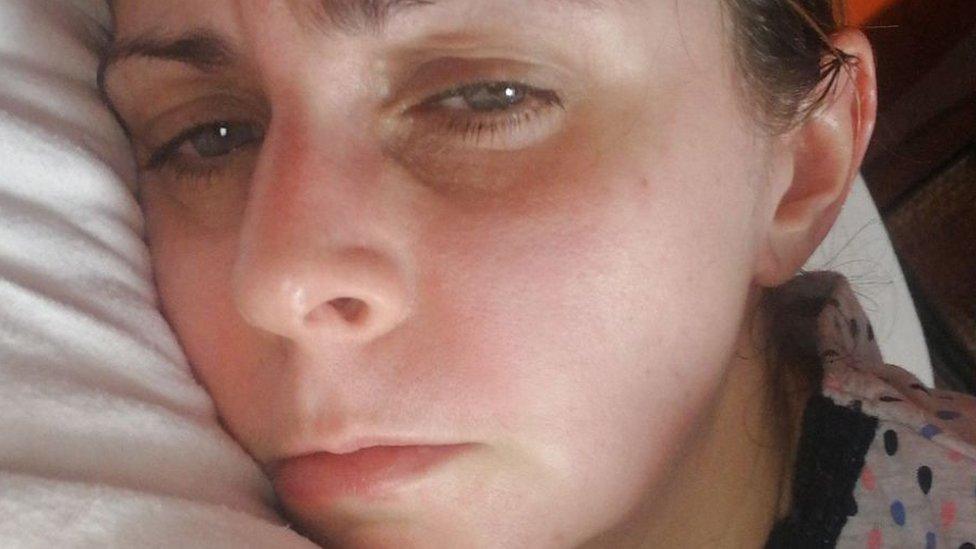
- Published1 February 2018
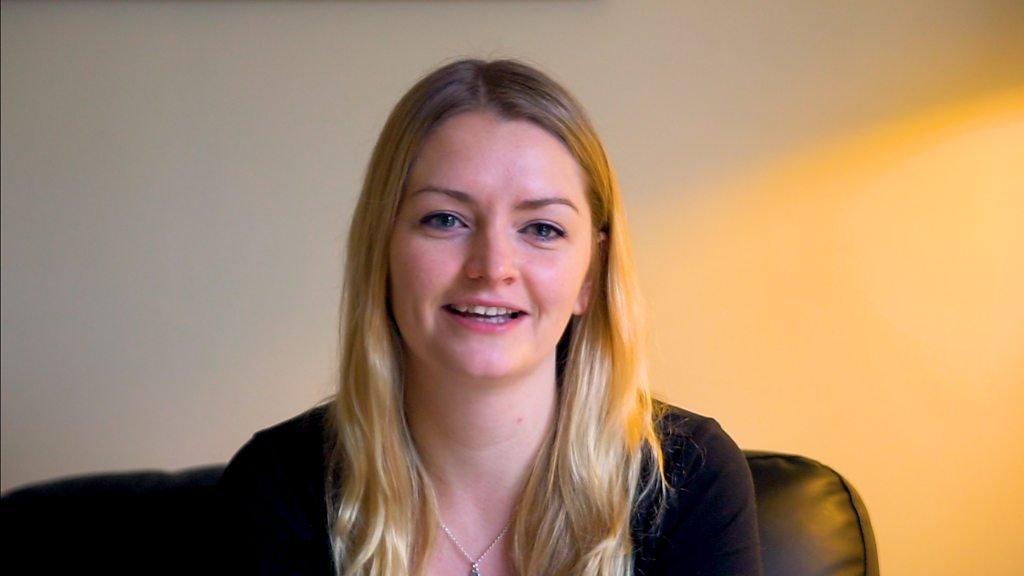
- Published6 December 2017
